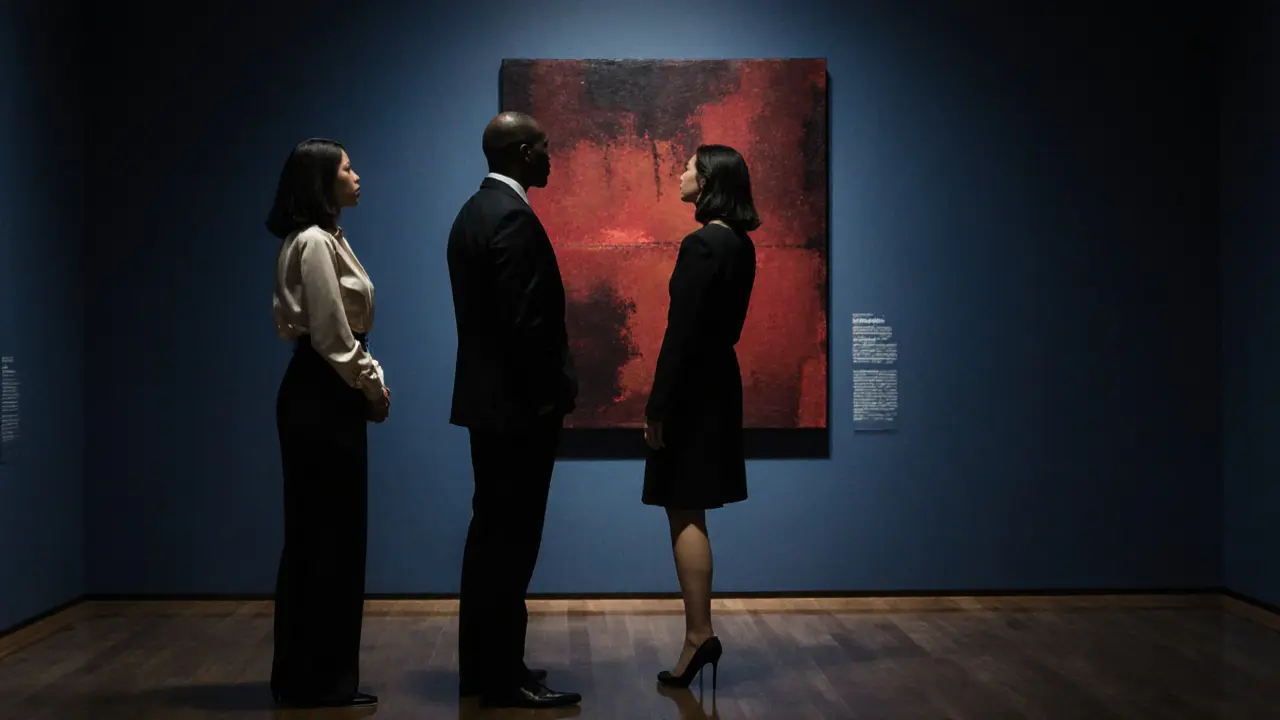When you hear the word "escort" in London, what comes to mind? Not the outdated stereotypes from movies or tabloids. Today, the modern escort in London is less about secrecy and more about curated experience-elegance, discretion, and emotional intelligence wrapped in a service that mirrors the city’s wealthiest lifestyles.
It’s Not What You Think
The idea of an escort as someone who simply provides physical company is outdated. In 2025, the most sought-after companions in London are professionals with advanced degrees, fluency in multiple languages, and backgrounds in arts, finance, or international diplomacy. Many have worked in corporate roles before transitioning into companionship full-time. They don’t advertise on street corners or sketchy websites. Their presence is felt in private members’ clubs, art gallery openings, and five-star hotel suites-places where discretion is non-negotiable.Take Sarah, a former investment banker from Zurich who now works as a London-based companion. She doesn’t list her services online. Clients come through vetted referrals. Her rate? £1,200 per hour. That’s not for sex. It’s for conversation that flows like wine-about Brexit’s impact on Swiss real estate, the new Rothko exhibit at Tate Modern, or how to navigate family trusts in the Channel Islands. Her clients aren’t looking for a hooker. They’re looking for someone who can hold their own at a dinner with a Swiss banker and a British peer.
The New Currency of Connection
Wealth in London doesn’t just mean money. It means access. And access to the right people, the right events, the right atmosphere often requires the right companion. For many high-net-worth individuals-especially those who travel frequently or live abroad-their social circles are thin. Networking events feel transactional. Friendships are hard to build when you’re constantly moving.That’s where the modern escort steps in. They’re not replacements for partners. They’re enhancers of experience. A client might hire one to attend the Royal Ascot with him, not because he’s lonely, but because he wants someone who knows how to dress for the occasion, who can navigate the social hierarchy of the Royal Enclosure without awkwardness, and who can engage in intelligent small talk about horse breeding without pretending to know more than they do.
A 2024 survey by the London Institute of Social Dynamics found that 68% of clients who use high-end companionship services do so for emotional and intellectual companionship-not physical intimacy. The top three reasons? Feeling understood, reducing social anxiety, and gaining cultural confidence in elite settings.
How It Works: The Unwritten Rules
There are no contracts. No invoices. No receipts. The system runs on trust, reputation, and silence. Agencies that still exist today operate like private concierge firms. They don’t list prices publicly. You don’t call them-you’re invited in.Here’s how it typically unfolds:
- A client is referred by someone they trust-a lawyer, a private banker, or a former companion.
- A discreet intake process begins: preferences, boundaries, travel needs, dietary restrictions, even favorite music genres.
- The client receives a short profile: education, languages, past engagements (no names), and areas of expertise.
- They meet for coffee-no obligation, no pressure. If it clicks, the arrangement begins.
- Payment is made in cash or encrypted crypto, never through digital trails.
There’s no nudity clause. No sexual expectations. Many clients explicitly forbid it. The value lies in presence, not performance.

Why London? Why Now?
London is uniquely positioned for this shift. It’s a global capital with one of the highest concentrations of ultra-high-net-worth individuals in the world-over 100,000 people with assets over $30 million. But it’s also a city where privacy is sacred. Unlike in cities like Los Angeles or Miami, where public personas dominate, Londoners value anonymity. The city’s class structure, centuries of tradition, and obsession with discretion make it the perfect incubator for this kind of service.Also, the rise of remote work and digital nomadism means more wealthy individuals are living in London temporarily-six months here, a year there. They don’t have time to build friendships. They need someone who can fill the gaps quickly, without drama.
And then there’s the gender shift. More men are hiring female companions. But increasingly, women are hiring male companions-especially those in finance, law, or tech. One client, a senior partner at a City firm, told a journalist off-record: "I don’t need someone to make me feel desired. I need someone who makes me feel normal. Someone who doesn’t care that I own a penthouse but cares deeply about my opinion on the new London Bridge station."
The Hidden Cost of Connection
This isn’t a service for everyone. The average hourly rate ranges from £800 to £2,500. Monthly retainers can exceed £30,000. It’s not just expensive-it’s exclusive. You can’t just book one on an app. You need an introduction. You need to be vetted. And you need to understand that this isn’t transactional. It’s relational.But here’s the real cost: emotional labor. The companions aren’t just there to look good. They’re trained in active listening, trauma-informed communication, and emotional regulation. Many have certifications in psychology or counseling. One companion I spoke with spent two years studying attachment theory so she could better support clients dealing with divorce or grief.
They don’t get paid to be happy. They get paid to be present.

Who’s Really Behind the Scenes?
The people you see at the opera or the polo match? They’re often former academics, ex-models, ex-lawyers, or ex-military officers. Some are single parents supporting children through private schools. Others are artists who found that their work wasn’t paying the bills, but their ability to hold space for others was.There’s no single profile. But there is a common thread: they’ve all been rejected by traditional systems. Rejected by corporate ladders. Rejected by dating apps. Rejected by social norms that say you have to be married to have a partner. They found a space where their skills-empathy, intellect, poise-are not just valued, but premium.
And the clients? They’re not all old men in suits. You’ll find tech founders in their thirties, widowed widows in their sixties, diplomats from countries where public relationships are dangerous, and even a few celebrities who need someone who won’t leak their location.
It’s Not About Sex. It’s About Humanity
In a world where loneliness is rising faster than wealth, the modern escort in London isn’t a symptom of decay. It’s a response to it. A quiet, elegant, deeply human solution to a problem no one talks about: how do you connect when you have everything, but no one to share it with?The escort doesn’t sell sex. They sell authenticity. They sell silence that doesn’t feel empty. They sell the feeling of being seen-not for your money, your title, or your property, but for your thoughts, your fears, your quirks.
That’s why this isn’t just about luxury. It’s about dignity. And in a city like London, where even the richest can feel invisible, that’s the most expensive thing of all.
Are escort services legal in London?
Yes, providing companionship services is legal in London as long as no explicit sexual activity is exchanged for money. Prostitution itself-selling sex for money-is illegal under UK law. But paying someone for their time, conversation, or presence at an event is not. The line is clear: no sexual acts in exchange for payment. Most reputable companions operate strictly within this boundary.
How do clients find these companions?
Most clients are referred through trusted networks-lawyers, private bankers, or previous clients. There are no public websites or apps. Agencies that still exist operate like elite concierge services, requiring background checks and references on both sides. The process is invitation-only, not search-based.
Do companions have formal training?
Many do. It’s common for companions to have degrees in psychology, social work, or communications. Some have completed certified courses in emotional intelligence, conflict resolution, or even etiquette. Others bring professional experience from fields like diplomacy, journalism, or corporate management. Training isn’t mandatory, but it’s expected at the high-end level.
Is this service only for men?
No. While historically male clients dominated, the market has shifted significantly. Women now make up nearly 40% of clients, including executives, entrepreneurs, and widows. Male companions are also increasingly common, especially among female clients who value emotional depth over physical attraction.
What’s the difference between an escort and a date?
A date is casual and often emotionally open-ended. An escort arrangement is professional, structured, and bound by clear expectations. There’s no romantic pursuit. No expectation of future meetings. It’s a temporary, paid connection designed to fulfill a specific social or emotional need-without complications.
Why don’t more people talk about this?
Because it’s deeply private-and intentionally so. Clients and companions both value discretion. Public exposure risks reputational damage, legal gray zones, and social stigma. The industry thrives on silence. Those who speak publicly often do so anonymously, and only after leaving the profession.
What Comes Next?
This isn’t a trend. It’s a reflection of how wealth and loneliness are evolving together. As cities become more isolated despite being more connected, the demand for authentic human connection will only grow. London’s escort scene isn’t about decadence. It’s about survival-for both those who offer the service and those who need it.The next chapter won’t be about more money or more glamour. It’ll be about regulation, ethics, and recognition. Will these professionals ever be seen as legitimate service providers? Will they get healthcare, contracts, or legal protections? For now, they operate in the shadows. But their existence speaks louder than any advertisement ever could: in a world obsessed with surface, the deepest luxury is still being truly seen.
